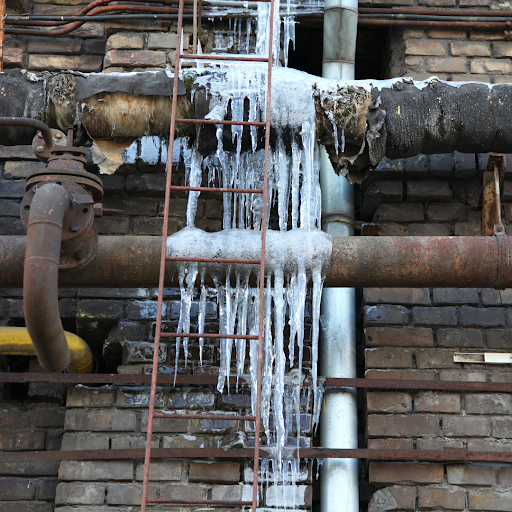How to Maintain Your Pipes from Freezing Issues: Essential Tips
How to Maintain Your Pipes from Freezing Issues: Essential Tips
Blog Article
Have you been looking for advise on How to Prevent Your Pipes From Freezing?

Cold weather can ruin your pipes, especially by freezing pipelines. Right here's just how to avoid it from happening and what to do if it does.
Introduction
As temperature levels decrease, the threat of icy pipes rises, potentially leading to costly repairs and water damages. Recognizing exactly how to stop frozen pipes is vital for homeowners in chilly environments.
Comprehending Icy Pipelines
What triggers pipes to freeze?
Pipes freeze when subjected to temperatures below 32 ° F (0 ° C) for expanded periods. As water inside the pipelines freezes, it increases, putting pressure on the pipeline wall surfaces and potentially causing them to rupture.
Threats and damages
Icy pipes can result in water supply disturbances, residential property damage, and costly fixings. Ruptured pipelines can flood homes and cause considerable architectural damages.
Indicators of Frozen Pipes
Determining frozen pipelines early can stop them from breaking.
How to identify frozen pipelines
Search for reduced water flow from faucets, uncommon smells or sounds from pipes, and noticeable frost on exposed pipelines.
Avoidance Tips
Protecting at risk pipes
Wrap pipelines in insulation sleeves or use heat tape to safeguard them from freezing temperature levels. Focus on pipelines in unheated or external areas of the home.
Home heating strategies
Maintain interior spaces appropriately warmed, specifically areas with plumbing. Open up cupboard doors to allow warm air to circulate around pipes under sinks.
Shielding Outdoor Plumbing
Yard pipes and outside taps
Separate and drain pipes yard tubes prior to winter months. Set up frost-proof faucets or cover outside taps with shielded caps.
What to Do If Your Pipes Freeze
Immediate actions to take
If you think icy pipes, keep faucets available to alleviate stress as the ice thaws. Make use of a hairdryer or towels taken in warm water to thaw pipelines slowly.
Long-Term Solutions
Structural changes
Consider rerouting pipes away from outside walls or unheated areas. Add added insulation to attics, cellars, and crawl spaces.
Upgrading insulation
Purchase top quality insulation for pipes, attics, and walls. Correct insulation assists keep constant temperature levels and minimizes the risk of icy pipelines.
Conclusion
Stopping frozen pipelines needs positive steps and quick feedbacks. By recognizing the causes, signs, and safety nets, property owners can shield their pipes throughout winter.
Helpful Tips to Prevent Frozen Pipes this Winter
UNDERSTANDING THE BASICS: WHY PIPES FREEZE AND WHY IT’S A PROBLEM
Water freezing inside pipes is common during the winter months, but understanding why pipes freeze, and the potential problems it can cause is crucial in preventing such incidents. This section will delve into the basics of why pipes freeze and the associated problems that may arise.
THE SCIENCE BEHIND FROZEN PIPES
When water reaches freezing temperatures, it undergoes a physical transformation and solidifies into ice. This expansion of water as it freezes is the primary reason pipes can burst. As the water inside the pipe freezes, it expands, creating immense pressure on the walls. If the pressure becomes too great, the pipe can crack or rupture, leading to leaks and water damage.
FACTORS THAT CONTRIBUTE TO PIPE FREEZING
Low Temperatures: Extremely cold weather, especially below freezing, increases the risk of pipes freezing. Uninsulated or Poorly Insulated Pipes: Pipes located in unheated areas, such as basements, crawl spaces, or attics, are more prone to freezing. Insufficient insulation or lack of insulation altogether exacerbates the problem. Exterior Wall Exposure: Pipes running along exterior walls are susceptible to freezing as they encounter colder temperatures outside. Lack of Heating or Temperature Regulation: Inadequate heating or inconsistent temperature control in your home can contribute to frozen pipes. PROBLEMS CAUSED BY FROZEN PIPES
- Pipe Bursting: As mentioned earlier, the expansion of water as it freezes can cause pipes to burst, resulting in significant water damage.
- Water Damage: When pipes burst, it can lead to flooding and water damage to your property, including walls, ceilings, flooring, and personal belongings.
- Structural Damage: Prolonged exposure to water from burst pipes can compromise the structural integrity of your home, leading to costly repairs.
- Mold and Mildew Growth: Excess moisture from water damage can create a favorable environment for mold and mildew growth, posing health risks to occupants.
- Disrupted Water Supply: Frozen pipes can also result in a complete or partial loss of water supply until the issue is resolved.
WHY CERTAIN PIPES ARE MORE PRONE TO FREEZING
- Location: Pipes located in unheated or poorly insulated areas, such as basements, crawl spaces, attics, or exterior walls, are at higher risk of freezing.
- Exterior Pipes: Outdoor pipes, such as those used for irrigation or exposed plumbing, are particularly vulnerable to freezing as they are directly exposed to the elements.
- Supply Lines: Pipes that carry water from the main water supply into your home, including the main water line, are critical to protect as freezing in these lines can affect your entire plumbing system.
- Underground Pipes: Pipes buried underground, such as those connected to sprinkler systems or outdoor faucets, can be susceptible to freezing if not properly insulated.
https://busybusy.com/blog/helpful-tips-to-prevent-frozen-pipes-this-winter/

Do you like more info about How to Prevent Your Pipes From Freezing? Try to leave a short review further down. We will be delighted to listen to your suggestions about this article. Hoping that you come back again in the near future. So long as you appreciated our blog posting please make sure you remember to pass it around. Thanks for your time invested reading it.
Call Today Report this page